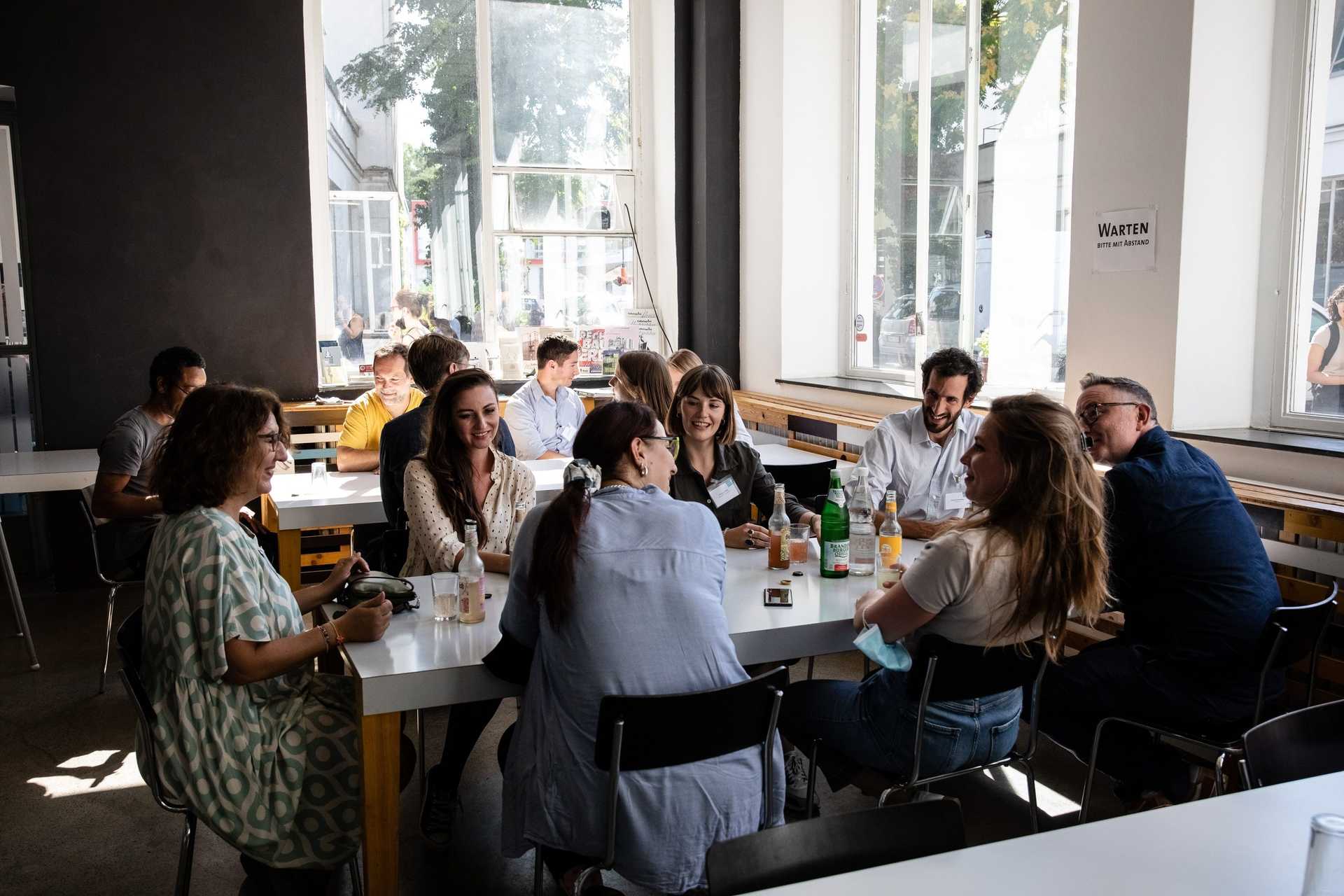"Pointing out the facts is enough to call us traitors"
A report from the European Conference of the Mediendienst Integration and their MigrationMediaEurope Network
By Martha Otwinowski, Project Lead & Workshops at Mediendienst Integration
Can the welcoming attitude for Ukrainian refugees spill over into better treatment of people from other countries seeking protection in Europe? How do debates on refugees and migration issues differ across the continent? Why do some negative narratives regarding immigrants seem so persistent – and what is needed to tell new stories?
These were some of the talking points at the two-day conference organised by MEDIENDIENST INTEGRATION: 'Communicating Migration Challenges 2022: Pre-pare, Expect, Act'. Around 50 people from all over Europe joined online and in Berlin: From Poland, Greece, Slovakia, France, the Czech Republic, Bosnia and Herze-govina, as well as Armenia, among others. Representatives from the International Organization for Migration (IOM) and the Organization for Economic Co-operation and Development (OECD) took part in the interdisciplinary exchange, as well as communication researchers, foundation representatives and employees of humanitarian aid organization’s such as Caritas.
Poland: Despite welcoming Ukrainian refugees no paradigm shift
Since Russia's attack on Ukraine, some countries in Central and Eastern Europe have been taking in large numbers of refugees. Does this mean there has been a change of heart in countries like Poland and Hungary, where there had been much resistance to take in refugees since 2015? Two of the largest aid organisations from both countries, the Ocalenie Foundation and the Hungarian Helsinki Foundation, addressed these questions at the conference.
Kalina Czwarnóg, director and head of communications at the Ocalenie Foundation, criticised Poland's "schizophrenic treatment" of refugees. While Ukrainians on Poland's South-Eastern border are being welcomed with open arms, people trying to cross at the Eastern border from Belarus are violently pushed back, she noted. "When we talk about the humanitarian emergency on the Belarusian border, the Polish government accuses us to work against the national interest […]. Pointing out the facts is enough to turn us into traitors," Czwarnóg said.
Hungary: Humanitarian NGOs working against 'state interest'
The Hungarian Helsinki Committee knows a thing or two about dealing with a government obstructing humanitarian work in the name of state interest. A 2018 law bans NGOs in Hungary from publishing and commissioning informational material on refugee and migration topics, said Anikó Bakonyi, director of the HHC's refugee programme. "Following 2015, Hungary almost completely abolished its national asylum and refugee system." It also fenced itself off with an elaborate border system. After the onset of war in Ukraine last year, Hungary opened its borders to Ukrainians and activated a protection procedure. However, this does not signify a u-turn of the country's refugee and asylum policy. As Bakonyi notes, Hungary continues to be a transit country for most refugees, including for those from Ukraine; this is also evidenced by official data (Source).
UK: The myth of total control over borders
Asylum and refugee policy are often built on migration narratives that long predate them. The UK's controversial agreement to 'outsource' its rejected asylum applicants to Rwanda, according to Rob McNeil from the Oxford Migration Observatory, is a case in point. "In the UK, the old image of the supposedly insurmountable cliffs of Dover is still present in people's minds", he said. However, migration has been an omnipresent and complex phenomenon throughout human history and total control over a territory is unrealistic. Initiatives wanting to address entrenched conceptions like these should be aware that change happens in small steps, over long stretches of time, McNeil said.
Slovakia and Czech Republic: different attitueds historically rooted
Equally, historically rooted ideas of 'the self' and 'the other' play a role in today's debates on taking in refugees from Ukraine across Central and Eastern Europe countries. The political scientist Kristina Chmelar from the Mercator Forum Migration and Democracy (MIDEM) reaserched different attitueds towards refugees in the Czech Republic and in Slovakia: in Slovakia, the fact that most Ukrainians are Christians was a central argument for taking them in. Meanwhile, across the border, in comparatively atheist Czechia, religion was a non-issue. Peter Ivanič attributed the Slovak position to the country's centuries-long history as directly neighbouring the Ottoman Empire. Ivanič is head of media programmes at the Slovak arm of the international aid organisation People in Need. The organisation was a cooperation partner for the conference.
Spain: Databases are a gold mine for new migration stories
Given the challenges, how can we realistically break through entrenched narrative patterns and tell new, informative migration stories? José Bautista of the Spanish-based non-profit media organisation porCausa recommends combing through open-source databases. By looking deep into publicly available data-sources, por-Causa was able to expose Spanish corporations who created a business model around deportations. It also found that formerly shrinking Spanish villages are being revitalised by EU migrants and refugees, which means crucial local infrastructure, formerly at risk of being permanently shut, was preserved. According to Bautista, these types of stories also appeal to a conservative researship.
The article was first published on Mediendienst Integration. Read the full report here.
